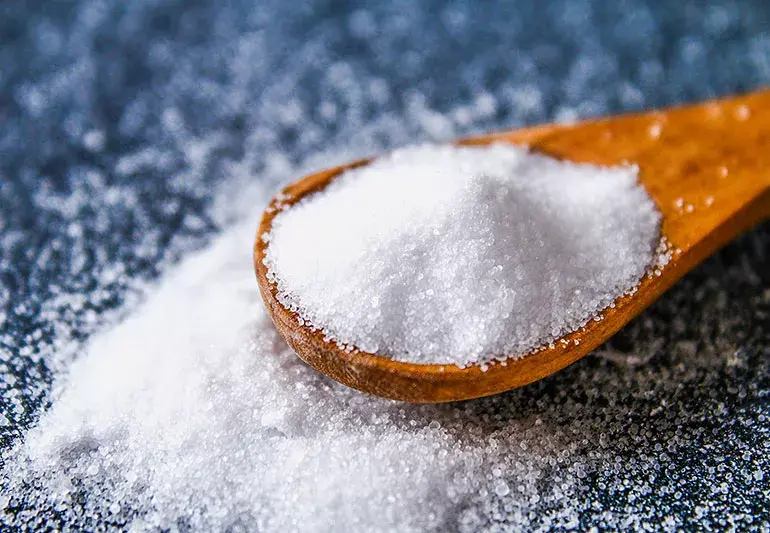High blood pressure aka hypertension, is a common condition that can lead to several severe health complications if left unmanaged. Effective management of blood pressure involves lifestyle changes, dietary adjustments, stress management, and sometimes medical intervention. That is why, this article explores 10 detailed proven strategies to lower blood pressure and promote overall cardiovascular health. If you are noticing symptoms of high blood pressure in your body then without wasting anymore time, read the full article below to know all these 10 proven methods to lower blood pressure.
Adopt a Heart-Healthy Diet
A heart-healthy diet is crucial to manage and lower blood pressure. Among all the heart-healthy diet types, the DASH (Dietary Approaches to Stop Hypertension) diet is particularly effective for managing blood pressure. Key components of this diet are described below in brief.

Consume a variety of fruits and vegetables, aiming for at least five servings each day. These foods are rich in potassium, which helps balance sodium levels and reduce blood pressure. Moreover, incorporate whole grains such as brown rice, quinoa, oats, and whole wheat bread into your diet. These grains are high in fiber and nutrients that help maintain healthy blood pressure levels.
Go for lean protein sources like poultry, fish, egg whites, beans, and legumes. Reduce the intake of red meat and processed meats, which can contribute to hypertension. Don’t forget to choose low-fat or fat-free dairy products to ensure adequate calcium intake without the added fat that can affect blood pressure. Lastly, for fats, use olive oil, avocados, nuts, and seeds which are healthy fats sources. Limit saturated fats and avoid trans fats found in many processed foods.
Reduce Sodium Intake
Excessive sodium intake is one of the most common causes of high blood pressure. Processed and packaged foods often contain high levels of sodium so opt for fresh, whole foods whenever possible. Check food labels for sodium content. Choose products labeled as “no added salt” Or “low sodium”. The best solution for controlling sodium intake is to prepare meals at home using fresh ingredients. This will allow you to control the amount of salt added to your food.

Engage in Regular Physical Activity
Regular physical activity strengthens the heart and other muscles, improves circulation, and most importantly, helps lower blood pressure. You can engage in aerobic activities such as walking, jogging, cycling, swimming, or dancing. Aim for at least 150 minutes of moderate-intensity exercise per week. In addition, you can include strength building exercises at least two days a week. Resistance exercises like weightlifting can also enhance overall cardiovascular health.

Stress is a factor that can contribute to hypertension in an indirect way so if you want to keep stress at bay, incorporate activities like yoga and tai chi to improve flexibility, balance, and stress reduction. We have discussed about this topic later in this article so keep reading!
Maintain a Healthy Weight
Excess body weight increases the workload on the heart and contributes to hypertension. So, you need to maintain a healthy bodyweight. Follow a balanced diet (like DASH diet which we have discussed earlier) rich in nutrients and low in calories. Avoid sugary drinks and snacks high in refined sugars. Keep in mind of portion sizes to avoid overeating. Eating smaller, more frequent meals can help maintain energy levels and prevent weight gain. Lastly, as we already have discussed, combine aerobic exercise with strength training to support weight loss and muscle maintenance.

Limit Alcohol Consumption
While moderate alcohol consumption can have some health benefits, excessive drinking can raise blood pressure. It’s no secret that limiting alcohol intake can help lower the blood pressure. Therefore, limit alcohol to one drink per day for women and two drinks per day for men. Generally, a standard drink is considered to be 12 ounces of beer, 5 ounces of wine, or 1.5 ounces of distilled spirits. Additionally, you can incorporate alcohol-free days into your week to restrain yourself from excessive intake.
Quit Smoking
Smoking and tobacco use are major risk factors for hypertension and cardiovascular disease. One should quit smoking to improve blood circulation and reduce the blood pressure almost immediately! Moreover, Quitting smoking improves lung function and overall respiratory health, which can indirectly support better cardiovascular health. Eliminating tobacco use decreases the risk of heart disease, stroke, and other hypertension-related complications.

Manage Stress Effectively
Chronic stress can easily contribute to high blood pressure. Implementing stress management techniques is crucial if you want to manage your blood pressure. Practices such as mindfulness meditation, deep breathing exercises, and progressive muscle relaxation can reduce stress and promote relaxation. Furthermore, you can also practise yoga and tai chi – these mind-body practices combine physical movement with breath control and meditation, helping to reduce stress and lower blood pressure. Another simple way to bring relaxation and reduce stress is to stay engaged in activities that bring joy and relax your mind, such as reading, gardening, painting, or listening to music.

Ensure Adequate Sleep
Poor sleep quality and insufficient sleep can also be a contributing factor to high blood pressure. You should opt for a better quality and sufficient sleep every night for managing blood pressure and improving overall wellbeing. Going to bed and waking up at the same time every day, even on weekends can help you to create a consistent sleep schedule. Ensure that your bedroom is cool, dark, and quiet. Use comfortable bedding and eliminate electronic devices that can disrupt sleep. Avoid caffeine, nicotine, and heavy meals close to bedtime, as these can interfere with sleep quality.

Also Read: Best Magnesium for Sleep: A Comprehensive Guide
Follow Medical Advice and Take Prescribed Medications
For some individuals, lifestyle and dietary changes may not be sufficient to control blood pressure. In those cases, medical interventions and medications may be necessary.
Several classes of medications are available to treat high blood pressure, including diuretics, ACE inhibitors, angiotensin II receptor blockers (ARBs), calcium channel blockers, and beta-blockers. Your healthcare provider will prescribe the appropriate medication based on your specific needs and goals.
In some cases, a combination of two or more antihypertensive medications may be necessary to achieve optimal blood pressure control. Follow your healthcare provider’s advice and take prescribed medications as directed. Do not stop or change medications without consulting your provider.
Monitor Blood Pressure Regularly
Regular monitoring of blood pressure helps track progress and identify issues early. You can use a validated home blood pressure monitor to regularly check your blood pressure. Keep a log to share with your healthcare provider. Schedule regular check-ups with your healthcare provider to assess blood pressure control, evaluate the effectiveness of treatments, and make necessary adjustments to manage and lower blood pressure.

The Sum-up
Lowering blood pressure effectively requires a comprehensive approach that includes dietary changes, regular physical activity, weight management, stress reduction, adequate sleep, and medical interventions when necessary. By adopting healthy habits and following medical advice, individuals can lower blood pressure, achieve better blood pressure control and reduce the risk of hypertension-related complications. Regular monitoring and routine check-ups are essential for successful blood pressure management. Collaboration between patients and healthcare providers is crucial for achieving optimal outcomes and promoting overall cardiovascular health. Hopefully, you found this article helpful enough. If you really did then let us know your valuable unfiltered thoughts in the comments. Thanks for visiting and appreciating our work.
